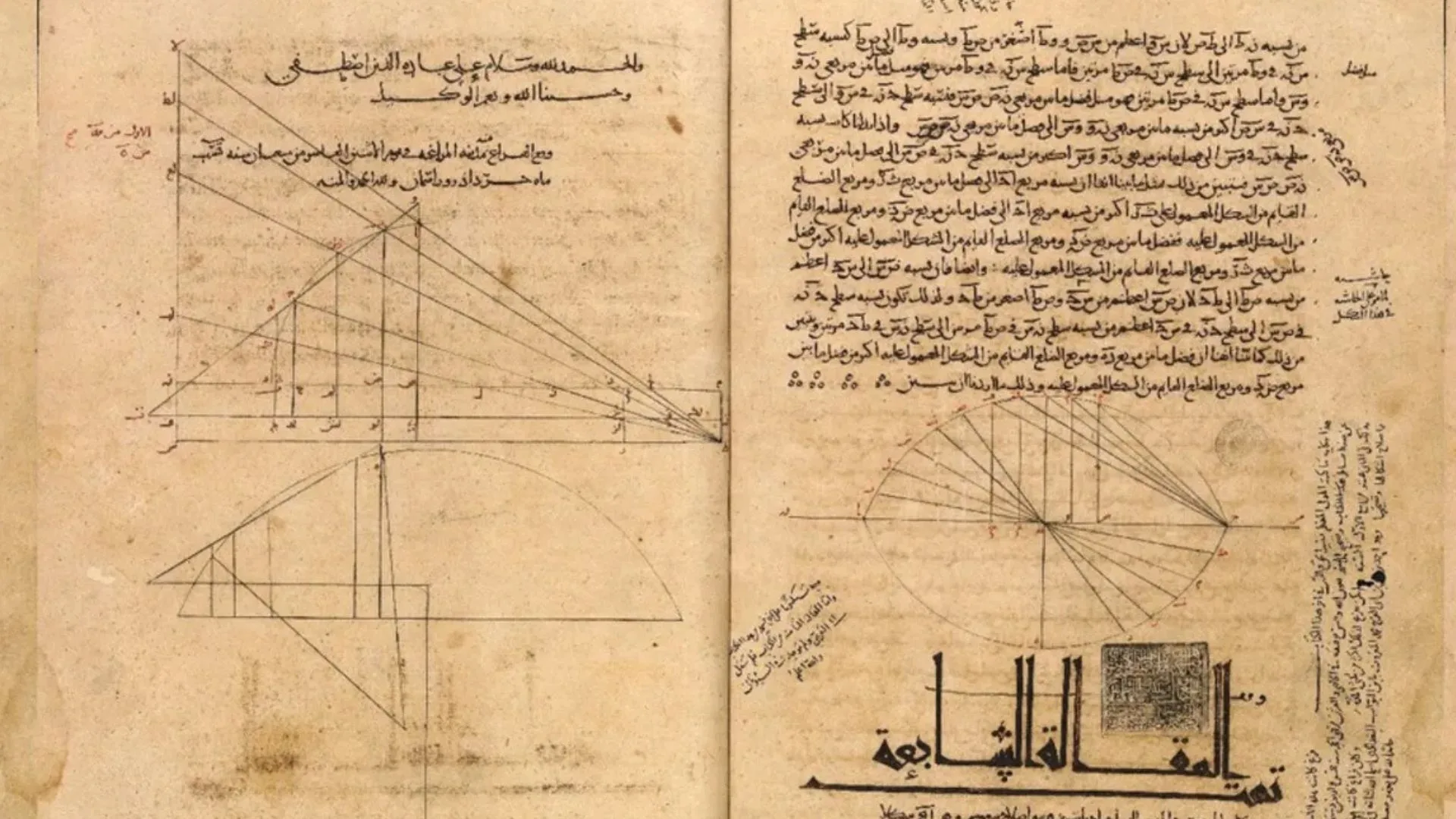Discoveries in historical research often come through years of meticulous study—or by sheer accident. The recent unearthing of two lost works by Apollonius, the ancient Greek mathematician known as the “Great Geometer,” falls into the latter category.
According to iflscience, these texts, long thought to be lost, were actually part of a collection of nearly 200 Arabic manuscripts brought to the University of Leiden in the 17th century. Locked away for centuries, they have now been identified as books five and seven of The Conics of Apollonius (c. 200 BCE).
“The work deals with the theory of ellipses, parabolas, and hyperbolas – the curves which you can see if you shine a flashlight on a wall,” explains a new book from the university. While only the first four volumes were believed to have survived, this discovery proves the enduring impact of the Islamic Golden Age in preserving ancient knowledge.
“Arabic manuscripts in Western libraries like Leiden University Libraries serve as invaluable records of Islamic civilization’s intellectual achievements, especially in mathematics and geometry,” said Mostafa Zahri of the University of Sharjah.
Despite their significance, many Arabic manuscripts remain understudied due to the specialized knowledge required to analyze them. “The study of Islamic manuscripts demands specialized knowledge, encompassing paleography, historical context, linguistic expertise, and scientific specialization,” explained Professor Mesut Idriz.
Beyond Apollonius’ works, the recovered texts include treatises on biology, astronomy, and math, such as the “Book of Perfections.” While some contain mythical elements, they remain vital records of medieval Middle Eastern scholarship.
Source: iflscience.com
